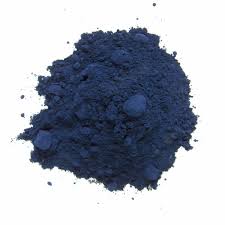Top exporters of Japanese indigo dye, leading suppliers in the global market.

japan indigo exporters. This natural aging process adds to the charm and character of indigo products, making them truly one-of-a-kind. The global demand for Japanese indigo products has led to an increase in exports, with many small-scale indigo producers partnering with international retailers to reach a broader audience. This has not only boosted the local economy but also brought greater recognition to the art of Japanese indigo dyeing on the world stage. As consumers become more conscious of the origins and production processes of the products they buy, Japanese indigo exporters are well-positioned to meet the growing demand for sustainable, ethically-made goods. By upholding the traditions of indigo dyeing while adapting to modern trends and technologies, Japan continues to set the standard for quality and craftsmanship in the global market. In conclusion, Japanese indigo exporters play a vital role in preserving the cultural heritage and craftsmanship of indigo dyeing while meeting the demands of a global market. With their commitment to quality, sustainability, and creativity, Japanese indigo products continue to captivate consumers around the world and will undoubtedly remain a timeless favorite for years to come.
-
Leading Indigo Blue Granular Company for Quality Granules & Export
NewsAug.31,2025
-
Sulphur Black Dye: Deep Black, High Fastness for Textile & Denim
NewsAug.30,2025
-
Black Sulfide: The Molecular Alchemy Behind Superior Textile Coloring
NewsAug.29,2026
-
The Uses Of Indigo Dyeing Cotton Yarn Dye
NewsAug.29,2025
-
The Dye Performance Of Bromo Indigo Blue
NewsAug.29,2025
-
Sulphur Black Dyes Enhance Color Fastness
NewsAug.29,2025
-
Indigo Blue Powder's Chemistry Intrigues
NewsAug.29,2025

Sulphur Black
1.Name: sulphur black; Sulfur Black; Sulphur Black 1;
2.Structure formula:
3.Molecule formula: C6H4N2O5
4.CAS No.: 1326-82-5
5.HS code: 32041911
6.Product specification:Appearance:black phosphorus flakes; black liquid

Bromo Indigo; Vat Bromo-Indigo; C.I.Vat Blue 5
1.Name: Bromo indigo; Vat bromo-indigo; C.I.Vat blue 5;
2.Structure formula:
3.Molecule formula: C16H6Br4N2O2
4.CAS No.: 2475-31-2
5.HS code: 3204151000 6.Major usage and instruction: Be mainly used to dye cotton fabrics.

Indigo Blue Vat Blue
1.Name: indigo blue,vat blue 1,
2.Structure formula:
3.Molecule formula: C16H10N2O2
4.. CAS No.: 482-89-3
5.Molecule weight: 262.62
6.HS code: 3204151000
7.Major usage and instruction: Be mainly used to dye cotton fabrics.

